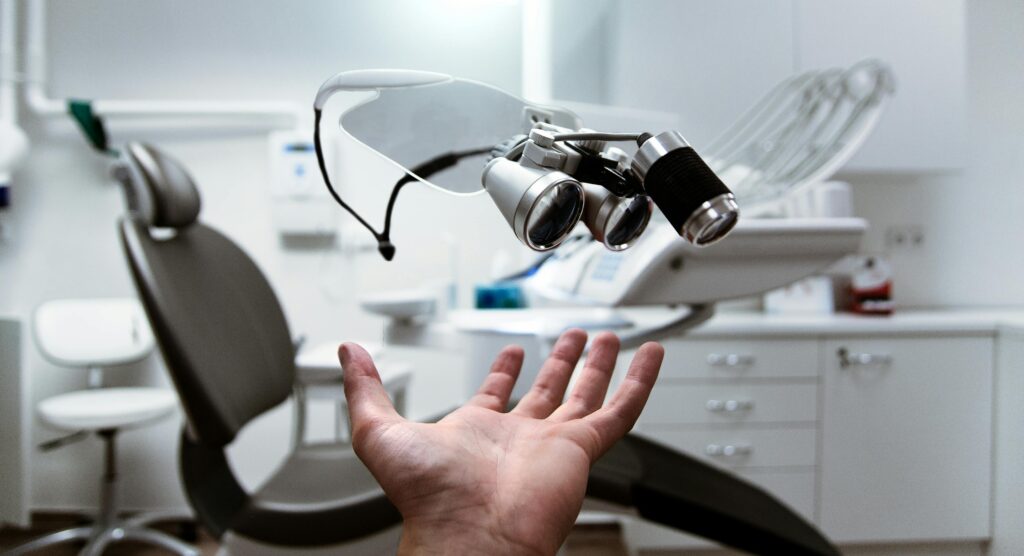The fiber-optic camera cable slid up into his sinus and down the back of his throat, only becoming uncomfortable when it reached the point that prompted his impulse to swallow. He suppressed the urge, drawing shallow breaths through his open mouth. Staring at the ceiling, his eyes began to water until he felt the sudden withdrawal of the cable—a bucket trundling up fast from the bottom of a well—and a tissue pressed into his open hand. Calder dabbed at the bubble suspended beneath his nose and waited for the verdict.
“Everything looks fine.”
Dr. Klauber returned the laryngoscope to a nearby countertop and wheeled the stool back to face him. He probed along his jawline with both thumbs, pushing deep to reach the nodes and glands back to his ears. When he shrunk from the stabbing pain, Klauber said, “It’s not pleasant, I know.” He stopped and snapped off the rubber examination gloves. “Everything’s fine.”
“What about the deterioration?”
Klauber rolled back to appraise him. “Yeah. I noticed the angle of your neck when I came in.” The gloves went into a chrome toe-operated bin. “Have you had any physical therapy?”
“No.”
“You could try that.” A compact man about his own age, Klauber stood and, with a wry smile, opened the door. The simple act cued the memory of his first appointment and Klauber’s reluctance to take him as a patient: “All my patients, I treated myself.” But in the end, with a shrug, he had agreed.
Calder pulled himself up from the chair. “You don’t think the bone is too far gone?”
“It probably is.”
“Would surgery help?”
“I can refer you to a neurosurgeon.” He reached for Calder’s file. “But you won’t be the same after that kind of surgery. No one is. He’ll tell you the same thing.” His smile evoked grit. “You might want to try living with it for as long as you can.”
Calder followed him into the corridor. “Will it get worse?” He knew it would. But he didn’t know how to ask the real question.
“It’s not going to get better.” Klauber stopped in front of the nurse’s station. “You were too young when you had your cancer. If you’d been seventy, who cares?” His eyes softened; his smile became warmer. “Look. This is what I tell my patients who are lucky enough like you to still be around. The cancer you had will not be what kills you.”
“Some other oral cancer?” He knew his head and neck could never sustain another course of radiation; his attending physician in London had told him that.
Klauber hesitated—deliberating—before he spoke. “The reality is, you’re stuck with the consequences of the treatment.” His smile evened out, almost to a frown. “What did you have?” He opened Calder’s folder.
“Chemotherapy and radiation.”
“Stage four.”
“Yes.”
“Survival rates are much higher for what you had.” He closed Calder’s file and placed it in an inbox on the nurse station desk. “The viral cancers offer some hope.”
Klauber turned toward the lobby. “You didn’t get cut. You were poisoned instead. Then it’s a toss-up. Will we kill you first or the cancer?” His smile became gentle, consoling. “In your case, it was the cancer.”
Doubt rose against this simple verdict. The stark white walls in the corridor, glaring with the artificial incandescence of fluorescent light, threatened his balance. A biting, clinical scent sharpened the austerity. “By a razor-thin margin,” he half-agreed.
But the question remained.
It would be so much easier not to ask, so much easier to preserve a sweet, beguiling ignorance. But Hana had shown him that photo on her phone again, taken as he sat on the edge of a hotel bed, his back to her as he pulled on ski socks, his head slung at a sickening angle on a stringy, emaciated neck, a photo snapped in horrified anger, one that demanded an answer. “How long before I should worry about the effects of the radiation?”
Klauber stopped. He studied him with a glum smile before answering, his words tinged with reluctant admission: “From the time of your treatment, twelve to fifteen years. That’s how long before you begin to see serious side effects.” He started walking again. “When was your treatment?”
“Eleven years ago.”
They had arrived at the door to the lobby.
“It’s an estimate,” Klauber said. “A statistical average. You could still live a long life.”
“Or not.”
“True. But you’ve done well to come this far.”
